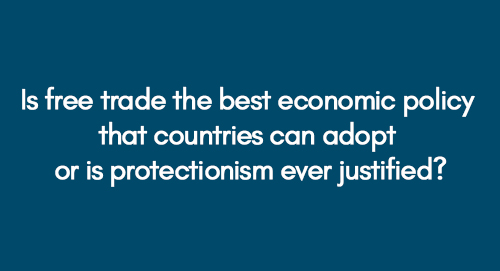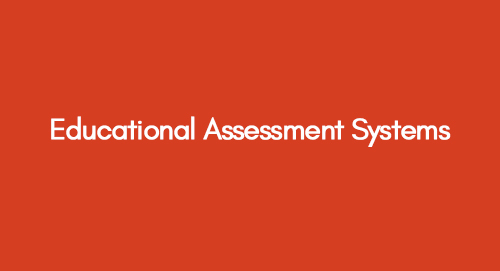
Bridge Design Analyses
February 26, 2021
Strategic development of materials and systems
February 26, 2021Abstract.
The essay highlights the free trade theory and the new models that advocate the use of protectionism against free movement of goods across borders. The benefits of free trade are widely known, therefore, the essay illustrates a comparative analysis amongst the two notions and highlights the shortcomings of the protectionism theory namely uncertainty, general equilibrium and dissipation of interventionist policies, resulting in free trade policy being invariably the right approach.
A free trade policy imposed by a government inherently aims to reduce the discrimination against imports and exports in order to allow a free movement of goods across borders; however, this does not necessarily entail a complete lack of control of trade policy and taxation. The primary objective was the mutual benefit of both the countries through exchange of goods and inflow of foreign exchange.
The government’s approach towards the adoption of a free trade policy underlines the laissez-faire with a positive assumption in the efficiency of the operating market. However, with the recognition of economies of scale and imperfect competition, the importance of a comparatively advantageous trade policy was undermined and therefore highlights two main arguments that give weight to the notion of protectionism rather than the free trade policy.
A complete opposite of the free trade policy, protectionism entails retraining trade through imposition of taxes, tariffs, quotas and various other regulations that aim to promote a concept of fair trade that is, fair competition between the domestically produced goods and imports. As the term itself highlights, the aim of such an approach is to product the domestic businesses and employees through promotion of local produce.
Protectionism versus Free Trade Policy.
It has been vehemently argued that the comparative advantage theory that had been put into place by Ricardo, is in fact a classical economic theory, however, its application to the modern day world is illogical and impractical. It is stated that theory initially aimed to encompass the movement of capital and products that were immobile between nations, and cannot be therefore extended to the application of free trade of goods across nations[1]. The movement of capital as was the initial encompassing intention will invariably flow to the nation where the costs are lowest in comparison in order to achieve an absolute advantage. A successful example of such a notion is the shifting of production plants to Mexico by various American companies including Hershey Chocolate[2].
Strategic Trade Policy.
A comparatively new idea to the notion of protectionism, strategic trade policy argues that in imperfect market globally, certain industries may be earning a higher return on investment then their initial cost that have been employed on resources. Where economies of scale are sufficiently larger in an industry and allows only the operation of one more entrant that may gain profit, where two entrants will penetrate the market, both will not only incur the initial losses but only one firm that has been able to establish itself within the industry will be able to earn a normal amount of return on investment. Brander and Spencer, 1985, state that in order to restrict foreign firms for competing within a lucrative market, the government must put into place subsidised approach to exports and restrictions on imports[3]. The term strategic trade policy entails the strategic placement of polices by the government to serve a form of oligopolistic competition.
Furthermore, by adopting this strategic position the government can support their own local firms in an era of international competition and therefore such a position would result in the enhancement of the particular nation’s welfare but on the expense of the foreign industry[4]. One way of achieving this strategic position is the imposition of subsidies; this would result in the protection of a market that is capable of producing good quality products, thereby enhancing the profits of the domestic market and reducing the profits of the foreign industry. In some instances, where both the local and international firms may enter the same market segment, through the application of subsidized exports, foreign market entry can be prevented and the domestic market can then be allowed to gain benefit from the excess return[5].
Also, it has been argued by various economists that such an approach to trade would invariably lead to encouragement of exports resulting in higher foreign exchange and an increase in the national income of the country. However, on the other hand, it is also argued by various economists, despite the attraction of the strategic policy, that it forms the basis of an actual intervention.
External Economies.
The concept of external economies is old in the theory deviating from the application of free trade and promulgates the notion that positive external economies can be achieved through encouraging activities that yield the same. The notion of positive external economies is a component of the traditional trade policy. Empirically, it seems that the best source for a positive external economy is through the inability of an innovative firm to fully appropriate the knowledge that they have created themselves[6]. This is most apparent in the case of extreme technological advancement, where the companies are constantly looking and examining the products of rival companies to decipher how a certain product was manufactured and currently operates. The emphasis placed on external economies has its basis on the same reasoning as the strategic trade policy, whereby the government should target particular sector, however, one strong distinguishing factor between the two theories is that emphasis on one particular industry sector that results in external economies does not affect other countries adversely. The positive or negative effect on other countries is dependent upon the externality sector being national or international. There is a constant struggle between nations as to who specifically will recognize these externalities.
Moreover, an externality can become the source of a conflict of interest internationally, however, various changes in the trade pattern have been identified which has resulted in the aforementioned struggle by nations for recognition of the externalities[7]. Such an argument results in doubting the current approach which requires deviation from the free trade policy because it requires a substantially respectable rationale for such an encumbering deviation.
Discussion and Conclusion.
The new approach towards the trade sector which invariably highlights the imperfect competition within the market and the need for a strategic role by the government, an inevitable intervention, has been to no surprise widely accepted throughout the globe. However, the main critique which is based on this specific government intervention has been an issue of debate by none other than the promulgators of the new economic trade theory approach.
It is argued that given the current circumstances and the empirical difficulties, that will invariably be apparent in the modelling of imperfect markets, it may be very difficult and impractical to formulate intervention policies by the government[8]. Furthermore, even if such an interventionist policy is formulated and subsequently implemented it will lose its effect with the entrance of firms that are operating to seek rent. Also, equilibrium considerations have to be analysed before any interventionist policy can be formulated and implemented because there is a higher chance that instead of raising the nation’s economic level, it may invariably have a negative effect on the economy of the particular nation.
Uncertainty is a major factor that prevents the application of new social economic trade policy theory because the governments are not aware of the effect such an intervention may have on not only their domestic economy but also on the relationship with other foreign jurisdictions[9]. Keeping in mind the oligopolistic competition, there is no specific model yet formulated or applied that can judge the behaviour of the oligopolistic, whereas on the other hand, the efficiency of such a policy will be solely dependent upon the cooperation by the local firms. Even where empirical difficulties have been overcome by the government and there has been a subsequent formulation of an intervention policy, this policy will have no effect where there are new foreign entrants in the market. Another issue to address is the budget constraints. Even where imperfect competition prevails in the form of an increase in the return of profit, a government cannot control and subsequently subsidize every product[10]. This means that where a government is promoting one particular sector, they will invariably have to take resources away from various other sectors. This again points out that the interventionist policy that may be formulated by the government may result in harm than the intentioned good it aims to achieve.
It must therefore be followed from the above discussion that where it is apparent that interventionist approach will result in subsequent good for the nation, there will be very little room to argue against its application. However, the aforementioned argument follow that the efficiency of an interventionist policy is fairly limited because of uncertainty of the outcome of these policies, the foreign firm entry into the market which would dissipate the intentioned effect of these new policies and the notion of general equilibrium where by such policies would take substantial resources away from various other industry market segments if certain market segments are to be targeted.
Therefore, concluding, free trade is in fact the right policy because comparative advantage is an incomplete model which has been supported by the promulgators of the new social economic trade policy theory.
- Herman, D. Ecological Economics and Sustainable Development. Northampton MA. Edward Elgar Publishing. 2007, pp 38-56.
- Vernon, R. International Investment and International Trade in Product Cycle. Quarterly Journal of Economics. 1966, pp 190-207.
- Jonathon, E. Optimal Trade and Industrial Policy under Oligopoly, Quarterly Journal of Economics. 1986, pp 383-406.
- Hurabell, M. Protectionism versus Free Trade: implementing the GATT anti dumping agreement in the United States. George Town University, Journal of International Business Law. 1995, pp 566- 612.
- Dani, R. Imperfect Competition and Trade Policy in Developing Countries. Harvard University mimeo, 1987.
- James, B and Spencer, B. International R & D Rivalry and Industrial Strategy, Review of Economic Studies, 1983, 50, 707-722.
- Krugman, P. Increasing Returns, Mo-nopolistic Competition, and International Trade. Journal of International Economics, 1979, 9, 469-479.
- Krugman, P. Is Free Trade Passe? The Journal of economic perspectives Volume 1, No 2. 1987, pp 131- 144.
[1] P. Krugman. Is Free Trade Passe? The Journal of economic perspectives Volume 1, No 2. 1987, pp 131- 144
[2] D. Herman, Ecological Economics and Sustainable Development. Northampton MA. Edward Elgar Publishing. 2007, pp 38-56.
[3] P. Krugman. Is Free Trade Passe? The Journal of economic perspectives Volume 1, No 2. 1987, pp 131- 144
[4] M. Hurabell. Protectionism versus Free Trade: implementing the GATT anti dumping agreement in the United States. George Town University, Journal of International Business Law. 1995, pp 566- 612.
[5] Dani, R. Imperfect Competition and Trade Policy in Developing Countries. Harvard University mimeo, 1987
[6] B, James. B, Spencer. International R & D Rivalry and Industrial Strategy, Review of Economic Studies, 1983, 50, 707-722
[7] E. Jonathan. Optimal Trade and Industrial Policy under Oligopoly, Quarterly Journal of Economics. 1986, pp 383-406
[8] P. Krugman. Is Free Trade Passe? The Journal of economic perspectives Volume 1, No 2. 1987, pp 131- 144
[9] P. Krugman. Increasing Returns, Mo-nopolistic Competition, and International Trade. Journal of International Economics, 1979, 9, 469-479.
[10] R. Vernon. International Investment and International Trade in Product Cycle. Quarterly Journal of Economics. 1966, pp 190-207</p
Get 3+ Free Dissertation Topics within 24 hours?



























